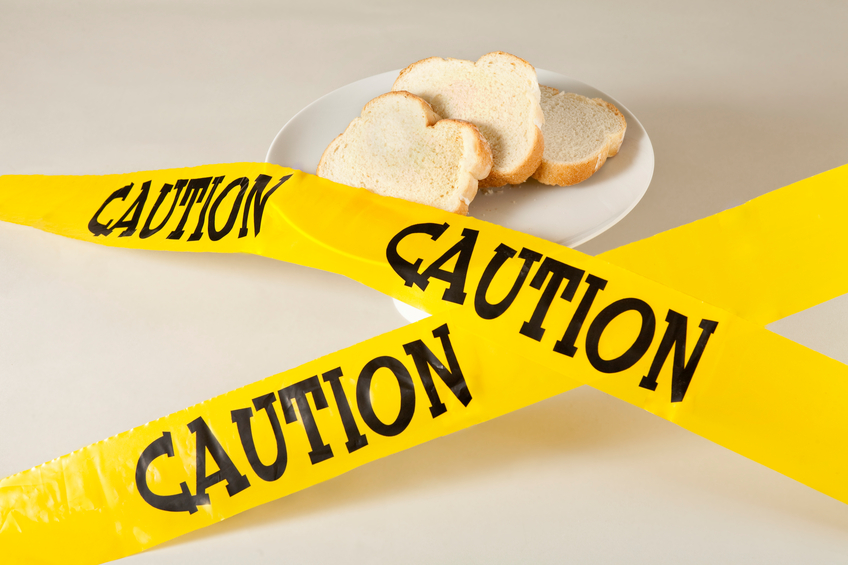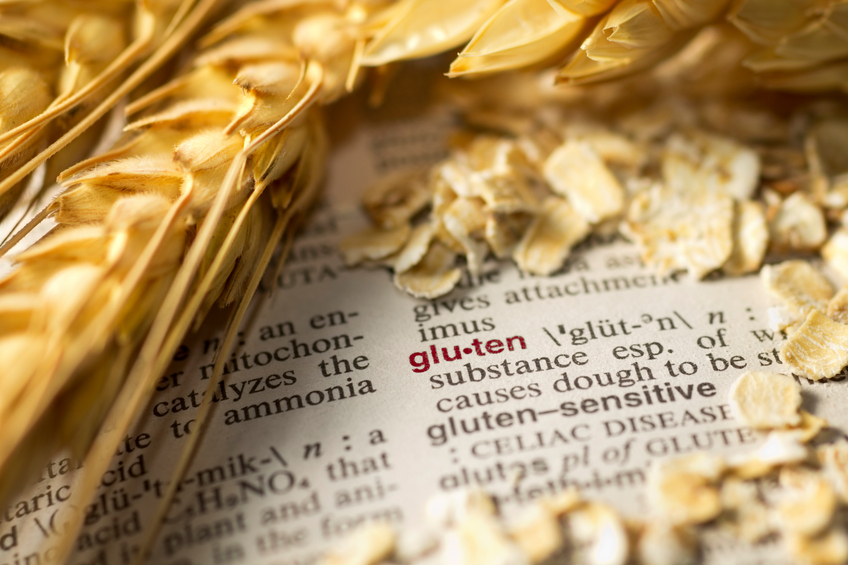A recent study explains that people sensitive to gluten, but not suffering from coeliac disease, have a weakened intestinal barrier that causes a variety of gastrointestinal and extraintestinal symptoms after eating bread and other products with wheat, rye or barley.

The study was published in the journal Gut on Monday, July 25, and it suggests that the non-coeliac gluten or wheat sensibility (NCWS) is due to the increased translocation of microbial and dietary components from the gut that gets into circulation. This is in part because there is intestinal cell damage and a weakened intestinal barrier.
NCWS has been a mystery because it causes similar symptoms to coeliac disease and has been tagged as lies because the patients do not show the normal blood, tissue, or genetic markers that are found in people with coeliac disease. But the study proves that if NCWS patients eat gluten, they suffer coeliac symptoms including abdominal pain, diarrhea, and bloating. But they also experience some extraintestinal symptoms, such as fatigue, cognitive difficulties, or mood disturbance.
A group of Columbia University Medical Center (CUMC) along other contributors, including Umberto Volta from the University of Bologna, Italy, examined 160 individuals to find what is behind the intestinal response of NCWS patients. The group was divided in 80 with NCWS, 40 people with coeliac disease, and 40 healthy controls.
What scientists found was the NCWS had a marker of intestinal cellular damage after eating gluten.This cellular damage correlated with serologic markers of acute systemic immune activation which according to the study’s results, is related to a microbial translocation increase and the presence of gut components in the circulation. The article says that the condition is in part due to a weakening of the intestinal barrier and intestinal cell damage.
Intestinal cytotoxic T cells, which are seen in coeliac patients, were not identified in the NCWS group
The study states that NCWS patients were able to regulate their immune activation and intestinal damage markers after following a gluten-free diet. When questionnaires were filled, patients said that avoiding wheat and related cereals improve their intestinal and nonintestinal symptoms.
The 40 people suffering from coeliac disease did not experience an increase in the blood markers of innate systemic immune activation despite the extensive intestinal damage. These results suggest the coeliac patients’ intestinal immune response can neutralize microbes or microbial components that may pass through the damaged intestinal barrier. This intestinal mechanism prevented the systemic inflammatory response of those immunostimulatory molecules that are triggered by gluten ingestion.

Researchers analyze the study results and prove NCWS symptoms are real
Armin Alaedini, Ph.D., assistant professor of medicine at CUMC, and study leader that the activation of a systematic intestinal immune response is consistent with the symptoms described by people that do not have coeliac disease.
Co-author Peter H. Green, MD, the Phyllis and Ivan Seidenberg Professor of Medicine at CUMC and director of the Coeliac Disease Center said the study proves that the coeliac-like symptoms experienced by some people are not imagined and confirms that there is a biological basis for them in a significant group.
Umberto Volta, MD, and professor of internal medicine at the University of Bologna says that the research changes the view on recognition and understanding of non-coeliac wheat sensitivity. He stated that the study would likely be relevant to a future diagnosis and treatment. Volta added that considering the large number of people affected by the disease, its undesirable symptoms, and the adverse impact on people’s life, NCWS deserves more attention and foundings to carry more research.
The Columbia study is titled “Intestinal cell damage and systemic immune activation in individuals reporting sensitivity to wheat in the absence of coeliac disease.”
Future NCWS studies will try to explain what triggers the intestinal damage
According to the press release published in CUMC’s newsroom, next NCWS researches made by Dr. Alaedini and his team will investigate what are the mechanisms that activate the intestinal damage and breach of the epithelial barrier. Future studies will also seek to characterise the cell immune responses.
NCWS has not accurate figures for its prevalence in people around the world, but it is estimated that this disease affects about 1 percent of the world’s population, which means that 3 million Americans are affected by the sensitivity. NCWS prevalence is roughly the same as coeliac disease.
Gluten-free diets: a treatment for coeliac and NCWS patients, and a trend for others
Suffering from intestinal problems is not mandatory when it comes to avoiding gluten in your daily diet. After a group of celebrities had started avoiding wheat, restaurants and supermarkets began to adapt to the gluten-free trend that triggered a new market.
Jessica Alba, Scarlett Johansson, Miley Cyrus, and many others have excluded gluten from their food habits, even though they are not NCWS or coeliac patients. Stars avoiding bread and pasta has make fans to follow these new habits thinking they are not eating gluten to keep their figure. What most people does not know is that cutting gluten from your diet could make you gain weight, according to Tanya Thomas of the British Dietetic Association and a study.
But not everything is fashion. Miley Cyrus has stated that she is allergic to lactose and gluten in response to the comments saying that she avoids wheat because she is anorexic.
Source: CUMC Newsroom
